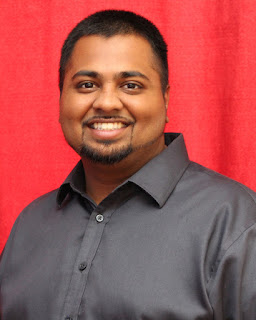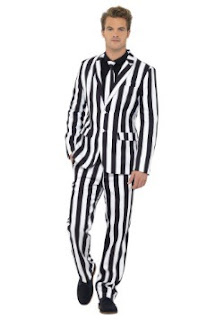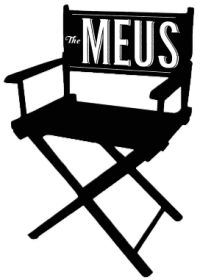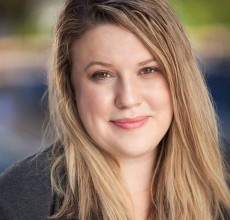Category Archives: News
Do you remember your first boyfriend?
Do you remember your first real lost?
What are your happy thoughts?
When you can draw from your own personal experiences to bring other characters to life they become more real on camera. Directors don’t want to see you acting. They want to see you present. When going through sides and script you need to think about an experience and how you can relate it to the character. It will help show realism in your acting.
Consistent training is important. It is never a bad idea to train. How else do you master your craft? Workshops with casting directors are the most valuable and instructors with a vast amount of experience in the industry.
SPECIAL SKILLS though are just as important. Lots of characters require very specific skill sets. If you have these skills it will separate you from other actors that don’t. I have had many actors that were hired just based on their special skill sets. Every professional actor should of their license. Do you know how many characters require that? What if they need you to drive suddenly for your character on set? Be prepared. If you don’t have it. Go get it.
Funny enough they do ask at least once a month for a character that is able to drive a bus. I wonder if Sandra Bullock had her bus license?
I’ve had many actors that are able to do their own stunts in movies or hired based on the ability to do stunts.
Jessica was hired based on her swimming and stunt experience.
Michelle trained and certified in stunt work. She could jump off a roof and did her own stunts in the feature film she was in. Not to many women are stunt certified. If you get that it puts you ahead of the game.
Kenneth certified in stunts. Was hired based on his skills for a music a video.
Just some examples on how your special skills can land you a job.
Here is a list of special skills that you may think about learning that come up regularly on breakdowns. Remember these skills could set you aside from your competition.
Special Skills:
- Horseback Riding
- Shooting a Gun
- CPR
- Martial Arts
- Stunt Certification
- Singing
- Whistling
- Driving
- Stunt Driving
- Juggling
- Swimming
- Gymnastics
- Jump Rope
- Dancing mostly Ballet, Tap and Hip Hop
- Russian Accent
- British Acent
- Irish Accent
- Greek Accent
- Scottish Accent
- Different Languages: Russian, Spanish, French, Greek. Mandarin and Arabic are the main ones that come up.
- Classical Theatre Training
- Archery
- Running
- Cycling
- Skating
- Skiing Down Hill and Cross Country
- Fencing
- Improv (Second City Training-they ask specifically for that)
- Sketch Show Experience
- Cry on Demand
- Able to scream
- Patting Your Head and Rubbing Your Belly…kidding..Can you do that though?
I hope that thinking about obtaining some of these skills or even brushing up on them will help you on your actors journey. Best of luck!
22/08
Step 1: Find a color background or wall. Color stick outs. Black and white can wash you out on camera. You can always go get some material from the fabric store.
Step 2: Lighting is important. If the director can’t see you act. They probably won’t give you the job. Let us see your pretty faces and your acting chops!
Step 3: A good camera and sound is important. There are always resources around if you don’t have have these things. Make friends with actors that do or friends that aren’t actors or go to a coach. Be resourceful. Again if they can’t see or hear you. You probably won’t get the job.
Step 4: On camera auditions are as important as go to auditions. These are not optional. Do not make excuses for not getting them done. IF one of my actors can do it on a vacation outside of a jungle and can get a job….Just do it. But since you’ve already done the other steps before this step …You knew that, didn’t you?
Step 5: Memorize your script. You are professional actor.
Step 6: Get a reader that is the right gender for the role.
Step 7: Please don’t wear something like this.
Yes. Avoid patterns. Black and white wardrobe.
Also don’t wear RED! No matter how hot you think it makes you look. DON’T DO IT.
Step 8: Follow instructions. Every video audition usually requests something different. Make sure you read the instructions and if something is unclear ask your agent. Usually, slate instructions vary per casting director or producer. If they don’t request a slate. Don’t do it.
Step 9: Frame. You should be in the centre of the frame with the bottom of the frame at the centre of your chest and the top of the frame slightly above your head. Don’t try to go all artsy fartsy on me. I know you guys want too!
Step 10: Tape your scenes individually or just flow through them. Don’t edit fancy transitions. They want to see your acting ability…not your editing ability.
Step 11: Take your time. Allow yourself to capture your best work. Come across as natural as possible. Don’t act. Be.
Step 12: Book part. If not, don’t think about it and focus on your next audition. Remember if you show them excellent work on your selftape they will be more inclined to bring you in for in person auditions.
Hope this was helpful this morning! This is what happens before your agent has coffee. She rants about useful steps!
Casting goes off of first impressions. They would categorize each person directly from their headshots. That’s why they are so important! You need to create an image that really POPS! Sometimes in their first, large group of considerations, they would be narrowing down 1,000 submissions for a role to about 70 candidates. Then they would go through and really watch the slate shots (this is so why it’s important to have it up), then they would take a quick look at their reels and look at their other headshots. From here, they would narrowed the pile to about 25 per role. Then the casting directors would go into take a deeper look at the actors reels, watching more scenes and really analyzing if we saw them as the character or not, narrowing the pool to about 15-20 per role. Sometimes even less. That’s why it’s important to have all the key components in your profile. As an actor your goal is to be shortlisted.
01/10
Improv skills are imperative when becoming a professional actor. Especially, when starting out. Many non union actor’s auditions are now including less scripts and more improv. Currently, we have about four non-union series happening in Ontario and every audition is based situational improv. Which means it is based on the characters and what conflict they encounter. Some examples include a mother losing her daughter, paranormal activity, and criminal cases.
I work with lots of comedians and find that ‘Second City’ has the best training when it comes to improv. It is also a recognizable school and casting directors are familiar with the caliber of quality training. If you have the chance to train, take advantage of the opportunity. I’m finishing reading, “Bossypants,” by Tina Fey. The book describes her training through ‘Second City,’ and how she was able to branch out in her career. I highly recommend the read because it’s simple and hilarious. She is a hilarious comedian-writer/comedian, and if you’re not familiar with her work, check her out. The book highlights the reality of having a career in the entertainment biz.
Be prepared to work long hours because it’s not a 9 to 5 job- but we do it because we love it. We do it because it allows us to be creative. Mostly it is because we can be the artist we were born to be.
Here is a reminder for a fantastic opportunity called ‘Improv Fundamentals’ that is scheduled to run October 6- November 10, 2016, 7:30-9 PM every Thursday. Minimum 8 students. Check it out.
Follow this link: https://www.eventbrite.ca/e/improv-fundamentals-tickets-27527225673
Some rules to follow for getting head shots:
1) Do not take photos behind a brick wall or in a forest. You are not posing for catalogs and you are not fairies. You are actors. Be in a studio with a color backdrop.
2) Lighting is very important. If the casting directors or producers cannot see your face, you probably will not be selected for an audition.
3) Think about what characters you play and dress accordingly; e.g. for parts such as lawyers or students. Look the part.
4) Dress like you would for an audition. Avoid black, whites, reds and patterns. Think about what color looks good on you and wear that. If you don’t know what color looks good on you take some sample photos with different wardrobes at home. Pastel colours are best.
5) It’s a head shot. It’s not a full body or far shot. If we cannot connect with your eyes, why would they call you in for an audition? CLOSE UP.
6) Go to reputable photographers, or get a recommendation. Not everyone with an SLR camera can take proper photos. I recommend Sarah Reid, Ron Sullivan, Gord Weber, and Jennifer Stanhope in Ottawa. I really like Sam Gatz and Tim Leyes in Toronto and Nick Kuiper for out west. Sarah Reid also does Toronto as well. There are many more that I could add to this list. The bottom line if you are uncertain, ask your agent for a recommendation.
7) If your agent tells you, you need a new head shot or if they do not like them, they are telling the TRUTH. They see what head shots work and what ones do not. It is really important to listen to your agent and ask advice before you go take the head shots. If you do not do that and you get no offer for an audition, it is likely because you did not follow direction to change the head shot.
“Follow the yellow brick road and you’ll find the Wizard”. Follow these steps and you will get more auditions.






























